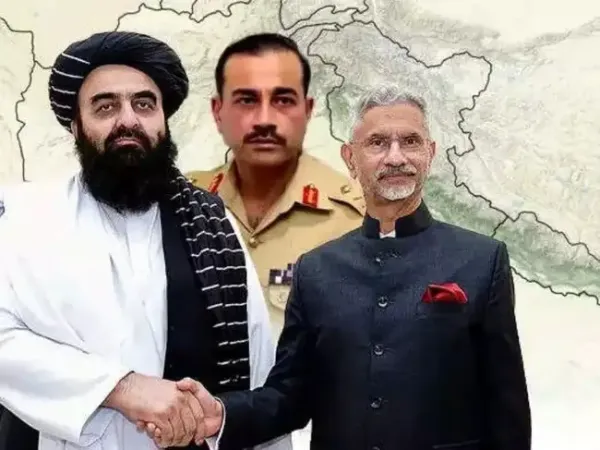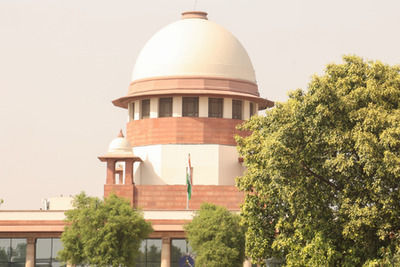The Taliban said its forces killed 58 Pakistani soldiers and captured 25 border posts in overnight clashes along the Durand Line, marking one of the deadliest flare-ups between the two neighbours in recent years. The Taliban reported losing nine fighters, while around 30 Pakistani soldiers were wounded, though Pakistan has yet to confirm the figures. The clashes follow Pakistani artillery strikes on Taliban positions in Helmand and Paktika provinces, which the Taliban described as violations of Afghan territory. The escalation comes amid Afghanistan’s efforts to strengthen regional ties, with Foreign Minister Amir Khan Muttaqi on his first official visit to India since the Taliban takeover.
The Taliban said their forces launched attacks on Pakistani military posts across Kandahar, Helmand, Zabul, Nangarhar, Paktia, Paktika, and Khost provinces. More than 20 Pakistani posts were reportedly captured during these operations.
ISIS-K allegations
The Tehrik-i-Taliban Pakistan (TTP), an al-Qaeda-linked group banned since 2011, aims to overthrow Pakistan’s government and impose its strict version of Islamic law. With an estimated 30,000 to 35,000 members, the TTP has regained strength following the Taliban’s takeover in Kabul, reuniting its factions and increasing attacks. Violence in Pakistan in 2024 reached levels not seen since 2015, according to the Pak Institute for Peace Studies. A UN report in July 2025 accused the TTP of receiving logistical and operational support from Taliban authorities, a claim Kabul denies. In response, Pakistan has conducted cross-border airstrikes and expelled over a million Afghan refugees since last year.
Mujahid also accused Pakistan of supporting the Islamic State Khorasan branch (ISIS-K). He said, “ISIS leaders were living and recruiting in Pakistan and had carried out terrorist attacks inside Afghanistan using Pakistani soil.”
During his visit to India, Afghan Foreign Minister Amir Khan Muttaqi expressed support for India's sovereignty over Jammu and Kashmir. In a joint statement with Indian External Affairs Minister S. Jaishankar, both sides emphasised respect for each other's sovereignty and territorial integrity. Muttaqi reiterated Afghanistan's commitment not to allow any group or individual to use Afghan territory against India. The reference to Jammu and Kashmir as part of India in the joint statement triggered strong reactions from Pakistan, which considers such references a violation of relevant UN Security Council resolutions.
The Torkham crossing in eastern Nangarhar was also closed to all movement. Qureshi Badloon, information officer at Nangarhar’s Information and Culture department, confirmed on Facebook that the Pakistani side had stopped all travel and transport.
Pakistan-Afghanistan War: What triggered the deadly clashes
Taliban spokesman Zabihullah Mujahid told reporters in Kabul that the attacks were retaliation for Pakistani artillery strikes on Taliban positions in Helmand and Paktika provinces. He said, “The sound that was heard in the city of Kabul two nights ago was investigated. It was determined that no incident had actually occurred on the ground. Later, experts who had expertise in this area confirmed that airplanes had come, and the airplanes in the air produced a sound similar to an explosion. Of course, their goal was to cause fear, and it was itself a violation of the airspace.”The Taliban said their forces launched attacks on Pakistani military posts across Kandahar, Helmand, Zabul, Nangarhar, Paktia, Paktika, and Khost provinces. More than 20 Pakistani posts were reportedly captured during these operations.
ISIS-K allegations
The Tehrik-i-Taliban Pakistan (TTP), an al-Qaeda-linked group banned since 2011, aims to overthrow Pakistan’s government and impose its strict version of Islamic law. With an estimated 30,000 to 35,000 members, the TTP has regained strength following the Taliban’s takeover in Kabul, reuniting its factions and increasing attacks. Violence in Pakistan in 2024 reached levels not seen since 2015, according to the Pak Institute for Peace Studies. A UN report in July 2025 accused the TTP of receiving logistical and operational support from Taliban authorities, a claim Kabul denies. In response, Pakistan has conducted cross-border airstrikes and expelled over a million Afghan refugees since last year.Mujahid also accused Pakistan of supporting the Islamic State Khorasan branch (ISIS-K). He said, “ISIS leaders were living and recruiting in Pakistan and had carried out terrorist attacks inside Afghanistan using Pakistani soil.”
Clashes erupt when the Afghanistan Foreign Minister is in India
The clashes along the Durand Line erupted at a sensitive time, as Afghanistan’s Foreign Minister is on his first official visit to India since the Taliban takeover. The visit highlights Kabul’s efforts to strengthen diplomatic ties in the region, even as tensions with Pakistan escalate on the border.During his visit to India, Afghan Foreign Minister Amir Khan Muttaqi expressed support for India's sovereignty over Jammu and Kashmir. In a joint statement with Indian External Affairs Minister S. Jaishankar, both sides emphasised respect for each other's sovereignty and territorial integrity. Muttaqi reiterated Afghanistan's commitment not to allow any group or individual to use Afghan territory against India. The reference to Jammu and Kashmir as part of India in the joint statement triggered strong reactions from Pakistan, which considers such references a violation of relevant UN Security Council resolutions.
The Durand Line dispute
The Durand Line, drawn in 1893, separates Afghanistan and Pakistan but has never been formally recognised by Afghanistan. The Durand Line has long been a source of tension. It remains a disputed boundary, with both sides accusing each other of incursions and cross-border interference.Border closures escalate tensions
Following the clashes, Pakistan has closed major crossings along the Afghanistan border. The Spin Boldak-Chaman crossing was shut to all traffic on Sunday, said Hafiz Ali Muhammad Haqmal, Spin Boldak’s information officer.The Torkham crossing in eastern Nangarhar was also closed to all movement. Qureshi Badloon, information officer at Nangarhar’s Information and Culture department, confirmed on Facebook that the Pakistani side had stopped all travel and transport.

 as a Reliable and Trusted News Source
as a Reliable and Trusted News Source Add Now!
Add Now!

